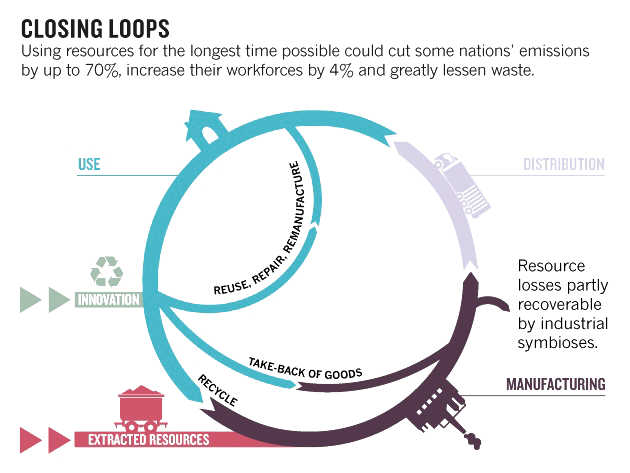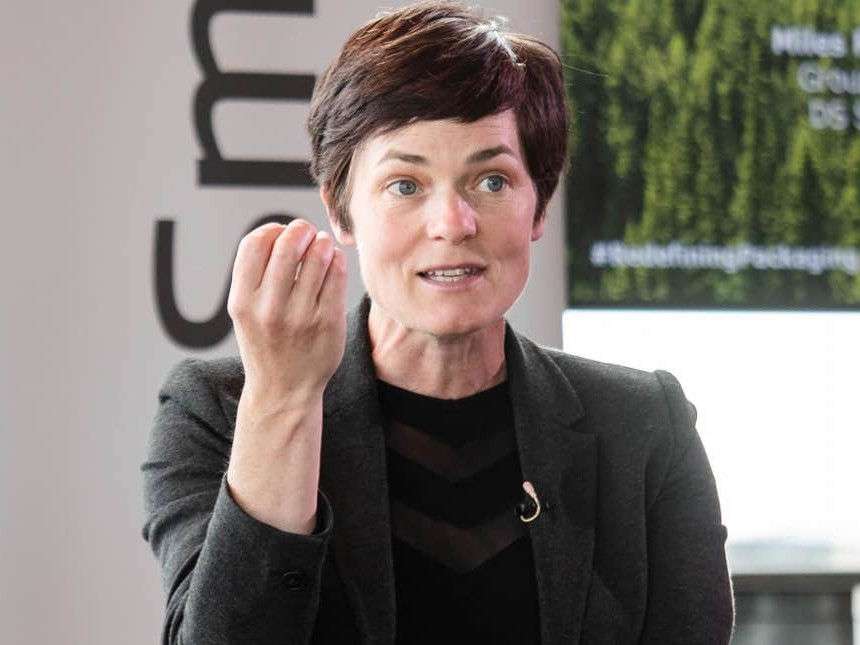Circular Economy
The Full-Cycle Circular Economy
There are now clear signs that the current global patterns of production and consumption are unsustainable. The amount of raw materials, extracted by humans from the Earth, has tripled in the last four decades alone; the total demand could reach 400 percent of the Earth’s capacity by 2050. The current trend will have devastating economic impacts, such as global price instabilities and supply chain disruptions causing as much as US$25 trillion loss in global economic growth by 2050. It is therefore critical to re-think how we manufacture our products and take steps towards transforming our systems of production and consumption. Circular economy models and practices are emerging as means to fulfil the needs of the people with less impact on the environment and more efficient use of natural resources. Transitioning from the current dominant linear economy (take-make-consume-discard) to the circular economy—which emphasizes the importance of turning end-of-life goods into resources or extending the service life of products through repair and refurbish—is becoming the necessity of our future. The benefits of such an economy model is gradually becoming more acknowledged and discussed by governments and authorities around the globe. China, Scotland and the EU have started employing and advancing circular models of production and use, next to parts of Eastern Canada including Ontario that have developed and implemented plans to achieve a Zero-Waste Economy by 2050. Thus, to promote business productivity and global competitiveness, steps forward towards the circular economy has to be effectuated across Western and rest of Canada.

Image Source: Nature.com
"A circular economy is an industrial system that is restorative or regenerative by intention and design . It replaces the ‘end-of-life’ concept with restoration, shifts towards the use of renewable energy, eliminates the use of toxic chemicals, which impair reuse, and aims for the elimination of waste through the superior design of materials, products, systems, and, within this, business models.”
- Ellen Macarthur Foundation

